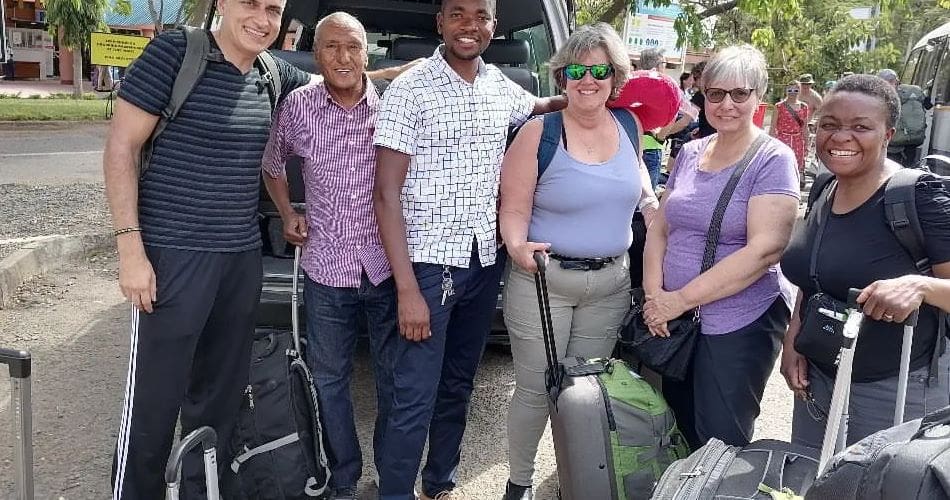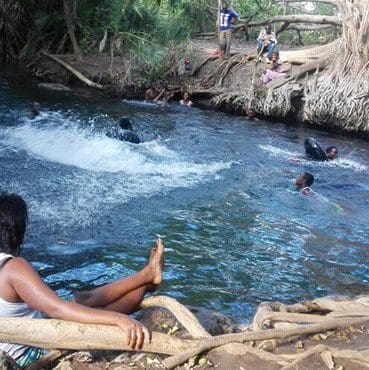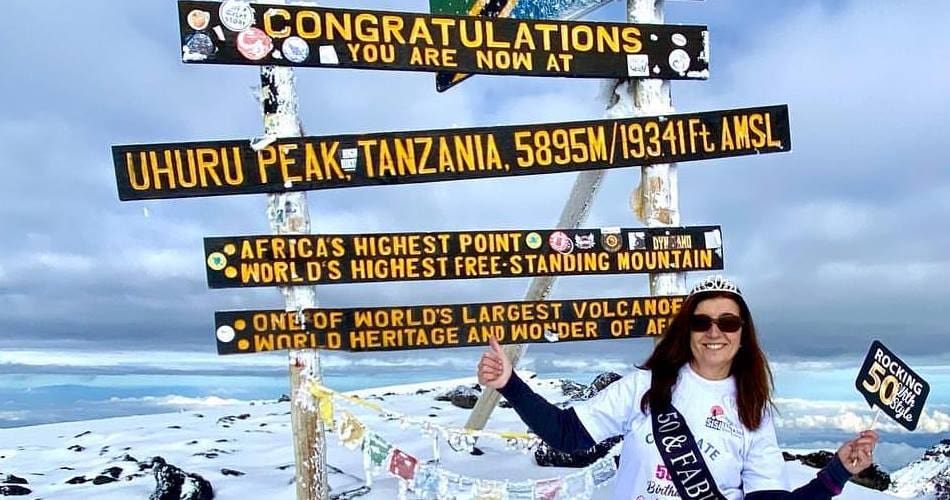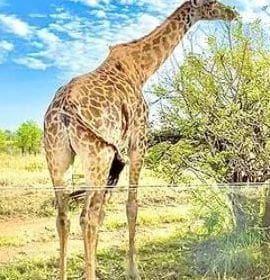Africa offers 10 incredible wonders to explore, from majestic wildlife to vibrant cultures. Start planning your unforgettable adventure across this vast continent!
Africa
Africa is a vast continent that encompasses a diverse array of cultures, languages, and landscapes. With a population of over 1.3 billion people, it is the second-largest continent in the world, after Asia. The continent is home to 54 countries, each with its own unique history, traditions, and political systems.
Africa’s geography is just as diverse as its people. From the Sahara desert in the north to the lush rainforests in the central region, and the savannas in the south, the continent boasts a wide range of ecosystems and wildlife. The Nile River, the longest river in the world, runs through several African countries, providing water and fertile land for agriculture. The continent is also home to some of the world’s most iconic landmarks, such as Mount Kilimanjaro, the Serengeti National Park, and the Victoria Falls.
Geography
Africa is a vast continent with varied geography. In this section, we will discuss the physical features and climate of Africa.
Physical Features
Africa is the second-largest continent, covering an area of 30,368,609 square kilometers. It is home to diverse physical features, including the Sahara, the largest hot desert in the world, and the Ethiopian Highlands, the largest continuous mountain range in Africa.
The continent also has several rivers, including the Nile, the longest river in the world, and the Congo, the second-largest river in Africa. Additionally, Africa has several lakes, including Lake Victoria, the largest lake in Africa and the second-largest freshwater lake in the world.
Climate
Africa’s climate is as diverse as its geography. The continent experiences a range of climatic conditions, from the dry and arid conditions of the Sahara to the tropical rainforests of Central Africa.
The equator runs through the center of the continent, dividing it into two hemispheres. As a result, Africa experiences both tropical and subtropical climates. The northern and southern parts of Africa are predominantly desert and semi-arid regions, while the central and eastern parts of the continent experience tropical and subtropical climates.
The continent also experiences seasonal changes due to the movement of the Inter-Tropical Convergence Zone (ITCZ). During the wet season, the ITCZ moves towards the equator, bringing heavy rainfall to the central and eastern parts of Africa. During the dry season, the ITCZ moves towards the tropics, resulting in dry conditions in the same regions.
In conclusion, Africa’s geography is diverse, with varied physical features and climates. Understanding the geography of Africa is crucial in comprehending the continent’s unique culture, history, and development.
History
Africa has a rich and complex history that spans thousands of years. In this section, we will explore the major historical periods of the continent, from the pre-colonial era to the post-colonial era.
Pre-Colonial Era
Before the arrival of Europeans, Africa was home to a wide variety of cultures and civilizations. These ranged from the ancient kingdoms of Egypt and Nubia in the north, to the great empires of Mali and Songhai in West Africa, to the city-states of the Swahili coast in East Africa.
Despite their diversity, many of these societies shared common features. They were often organized around powerful rulers or chiefs, who controlled the labor and resources of their subjects. They also had complex systems of trade and commerce, which connected them to other parts of the continent and the wider world.
Colonialism
In the late 19th and early 20th centuries, European powers began to colonize Africa in earnest. This period of colonialism had a profound impact on the continent, both in terms of its political and economic structures and its social and cultural norms.
European colonizers imposed their own systems of government and law on African societies, often using force to subjugate local populations. They also exploited Africa’s natural resources, such as minerals and agricultural products, for their own benefit, often at great cost to the local environment and economy.
At the same time, colonialism also brought new technologies and ideas to Africa, such as modern medicine, education, and political ideologies. These innovations would play an important role in shaping the continent’s future.
Post-Colonial Era
In the decades following World War II, African nations began to gain their independence from European colonial powers. This period of decolonization was marked by both hope and uncertainty, as newly independent nations struggled to build stable and prosperous societies.
Many African countries faced significant challenges in the post-colonial era, including political instability, economic underdevelopment, and social inequality. However, they also made important strides in areas such as education, health care, and human rights.
Today, Africa is a diverse and dynamic continent, home to over 1.3 billion people and a wide range of cultures, languages, and traditions. While its history has been shaped by many challenges and setbacks, it is also a story of resilience, innovation, and hope for the future.
Culture
Africa is a continent with a rich and diverse cultural heritage. Our culture is a product of the diverse populations that inhabit the continent and the African diaspora. In this section, we will explore some of the key aspects of African culture, including arts and music, religion, and languages.
Arts and Music
African art and music are known for their vibrancy and diversity. From traditional tribal art to modern contemporary pieces, African art is a reflection of our history, culture, and identity. Many African art forms are deeply rooted in religious and spiritual beliefs, and they often serve as a means of communication between the living and the dead.
Similarly, African music is a reflection of our rich cultural heritage. It is often characterized by complex rhythms and melodies, and it is used in both religious and secular contexts. Traditional African music is often performed using a variety of instruments, including drums, stringed instruments, and wind instruments.
Religion
Religion plays a significant role in African culture. Many African religions are based on animism, the belief that all living things have a spirit or soul. In addition to animism, many Africans practice Christianity, Islam, or a combination of both. These religions were introduced to Africa through colonization and the transatlantic slave trade.
Languages
Africa is home to more than 1,500 languages, making it one of the most linguistically diverse regions in the world. Some of the most widely spoken languages in Africa include Swahili, Hausa, Yoruba, and Zulu. Many African languages are tonal, meaning that the pitch of a word can change its meaning.
In conclusion, African culture is a reflection of our rich and diverse history. Our art, music, religion, and languages are all integral parts of our cultural heritage, and they continue to shape our identity and way of life.
Economy
Africa’s economy is diverse and resource-rich, with a variety of sectors contributing to its growth. In this section, we will discuss the main sectors of the African economy: Agriculture, Mining, and Tourism.
Agriculture
Agriculture is a significant sector of the African economy, employing millions of people and contributing to the continent’s food security. Africa has vast arable land, favorable weather conditions, and abundant water resources, making it a prime location for farming. The sector is dominated by small-scale farmers, who produce crops such as maize, cassava, rice, and wheat. These crops are the primary source of food for millions of Africans, and they are also exported to other countries.
Mining
Mining is another critical sector of the African economy, with many countries rich in mineral resources. Africa is home to some of the world’s largest deposits of gold, diamonds, platinum, and other precious metals. The mining sector provides employment opportunities and generates significant revenue for many African countries. However, mining operations can have negative environmental impacts if not conducted responsibly.
Tourism
Tourism is a growing sector of the African economy, with many countries having unique natural and cultural attractions. Africa has diverse wildlife, beautiful beaches, and ancient historical sites, making it a popular destination for tourists from around the world. The sector provides employment opportunities and generates significant revenue for many African countries. However, the COVID-19 pandemic has had a significant impact on the tourism industry, with many countries experiencing a decline in visitor numbers.
Overall, the African economy is diverse and resource-rich, with many sectors contributing to its growth. Agriculture, mining, and tourism are just a few examples of the many sectors that make up the African economy.
Politics
In Africa, politics is a complex and diverse topic, with each country having its unique political landscape. However, there are some commonalities that we can observe across the continent. In this section, we will discuss the governance structure and international relations of African countries.
Governance
Governance in Africa is characterized by a mix of democratic and authoritarian regimes. While some countries have made significant strides in democratization, others continue to struggle with issues of corruption, human rights violations, and lack of transparency.
According to the Mo Ibrahim Foundation, which measures governance in African countries, the overall governance score for the continent has improved over the past decade. However, progress has been uneven, with some countries experiencing significant setbacks.
One of the challenges facing governance in Africa is the concentration of power in the hands of a few individuals or groups. This has led to a lack of accountability and increased corruption, which has undermined development and progress in many countries.
International Relations
African countries have diverse relationships with the rest of the world, with some countries having strong ties with Western nations, while others have closer relationships with China or Russia.
China has emerged as a major player in Africa, with its investments and infrastructure projects in the continent. While China’s involvement has been beneficial for many African countries, there are concerns about debt sustainability and the impact of Chinese investments on local industries.
The United States and European Union continue to be important partners for many African countries, providing aid, investment, and support for democratic reforms. However, there are also concerns about Western influence on African politics and the impact of foreign aid on local economies.
Overall, African politics is complex and diverse, with each country facing unique challenges and opportunities. While progress has been made in some areas, there is still a long way to go to achieve sustainable and equitable governance in the continent.
Issues
As we look at Africa, we see a continent with a diverse range of challenges that affect the lives of millions of people. Poverty, conflict, security, and health are just a few of the issues that require our attention and action.
Poverty and Development
Poverty is one of the most pressing issues in Africa. According to the World Bank, over 40% of the population lives in extreme poverty. This means that they have to survive on less than $1.90 per day. The lack of basic needs such as food, clean water, and shelter is a major concern for many people in Africa.
Development is another issue that affects Africa. Despite the continent’s vast resources, many countries struggle with economic growth and development. This is due to a variety of factors such as corruption, poor governance, and limited access to education and healthcare.
Conflict and Security
Conflict and security are also major issues in Africa. Many countries are plagued by armed conflicts, civil wars, and terrorism. These conflicts have resulted in the displacement of millions of people and have had a devastating impact on the continent’s economy and social fabric.
In addition, Africa is also facing security challenges such as piracy, drug trafficking, and cybercrime. These challenges require a coordinated effort from governments, international organizations, and civil society to combat.
Health
Health is another issue that affects Africa. The continent is home to some of the world’s most devastating diseases such as HIV/AIDS, malaria, and tuberculosis. These diseases have a significant impact on the lives of millions of people and have a negative impact on the continent’s economy.
In addition, Africa also faces health challenges such as inadequate healthcare infrastructure, limited access to medicines, and a shortage of healthcare workers. These challenges require a concerted effort from governments, international organizations, and civil society to address.
Overall, Africa faces a range of complex issues that require our attention and action. By working together, we can address these challenges and create a better future for the continent and its people.













